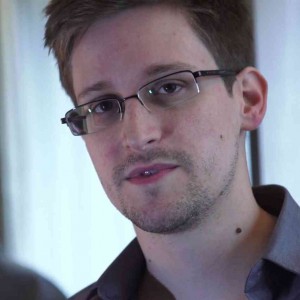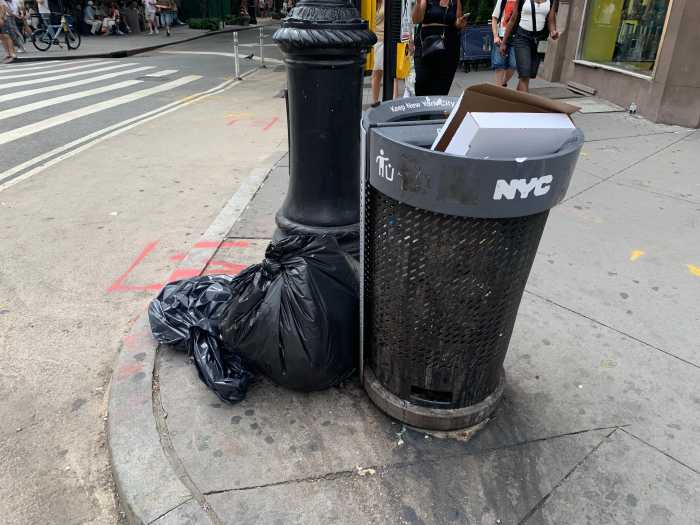
Edward Snowden, the former National Security Agency (NSA) contractor who blew the whistle on several of its most covert surveillance programs earlier this month, fielded questions from the public for about two hours Monday via a live Q&A chat on The Guardian‘s website.
The 29-year-old, who’s been in Hong Kong since the end of May before being fired from consulting firm Booz Allen Hamilton, answered a range of inquiries spanning a host of topics, addressing remarks by US officials such as Rep. Peter King (R-Seaford) and former Vice President Dick Cheney that he is a “traitor” and insinuations he’s spying for the Chinese, to skepticism regarding the full extent of the outed programs.
To the former, Snowden responded:
“…it’s important to bear in mind I’m being called a traitor by men like former Vice President Dick Cheney. This is a man who gave us the warrantless wiretapping scheme as a kind of atrocity warm-up on the way to deceitfully engineering a conflict that has killed over 4,400 and maimed nearly 32,000 Americans, as well as leaving over 100,000 Iraqis dead. Being called a traitor by Dick Cheney is the highest honor you can give an American, and the more panicked talk we hear from people like him, Feinstein, and King, the better off we all are. If they had taught a class on how to be the kind of citizen Dick Cheney worries about, I would have finished high school.”
On the latter:
“US Persons do enjoy limited policy protections (and again, it’s important to understand that policy protection is no protection – policy is a one-way ratchet that only loosens) and one very weak technical protection – a near-the-front-end filter at our ingestion points. The filter is constantly out of date, is set at what is euphemistically referred to as the ‘widest allowable aperture,’ and can be stripped out at any time. Even with the filter, US comms get ingested, and even more so as soon as they leave the border. Your protected communications shouldn’t stop being protected communications just because of the IP they’re tagged with.”
“This country is worth dying for,” Snowden responded when asked what he’d “say to others who are in a position to leak classified information that could improve public understanding of the intelligence apparatus of the USA and its effect on civil liberties.”
In response to whether he believed the treatment of other whistleblowers, such as former NSA crypto-mathematician William Binney and former NSA senior executive Thomas Drake, influenced his path and whether he felt the “system works,” Snowden warned:
“Binney, Drake, [John] Kiriakou, and [Bradley] Manning are all examples of how overly-harsh responses to public-interest whistle-blowing only escalate the scale, scope, and skill involved in future disclosures. Citizens with a conscience are not going to ignore wrong-doing simply because they’ll be destroyed for it: the conscience forbids it. Instead, these draconian responses simply build better whistleblowers. If the Obama administration responds with an even harsher hand against me, they can be assured that they’ll soon find themselves facing an equally harsh public response.
“This disclosure provides Obama an opportunity to appeal for a return to sanity, constitutional policy, and the rule of law rather than men. He still has plenty of time to go down in history as the President who looked into the abyss and stepped back, rather than leaping forward into it. I would advise he personally call for a special committee to review these interception programs, repudiate the dangerous ‘State Secrets’ privilege, and, upon preparing to leave office, begin a tradition for all Presidents forthwith to demonstrate their respect for the law by appointing a special investigator to review the policies of their years in office for any wrongdoing. There can be no faith in government if our highest offices are excused from scrutiny – they should be setting the example of transparency.”
The Guardian‘s Glenn Greenwald, who broke the news June 5 about the NSA’s collection of “the telephone records of millions of US customers of Verizon,” citing a “top secret court order issued in April,” began and ended the 11 a.m. to 12:45 p.m. EST session. (Snowden revealed himself as the The Guardian‘s source in a video interview posted on its site June 9.)
“1) Why did you choose Hong Kong to go to and then tell them about US hacking on their research facilities and universities?” he wrote. “2) How many sets of the documents you disclosed did you make, and how many different people have them? If anything happens to you, do they still exist?”
Snowden’s responses:
“1) First, the US Government, just as they did with other whistleblowers, immediately and predictably destroyed any possibility of a fair trial at home, openly declaring me guilty of treason and that the disclosure of secret, criminal, and even unconstitutional acts is an unforgivable crime. That’s not justice, and it would be foolish to volunteer yourself to it if you can do more good outside of prison than in it.
“Second, let’s be clear: I did not reveal any US operations against legitimate military targets. I pointed out where the NSA has hacked civilian infrastructure such as universities, hospitals, and private businesses because it is dangerous. These nakedly, aggressively criminal acts are wrong no matter the target. Not only that, when NSA makes a technical mistake during an exploitation operation, critical systems crash. Congress hasn’t declared war on the countries – the majority of them are our allies – but without asking for public permission, NSA is running network operations against them that affect millions of innocent people. And for what? So we can have secret access to a computer in a country we’re not even fighting? So we can potentially reveal a potential terrorist with the potential to kill fewer Americans than our own Police? No, the public needs to know the kinds of things a government does in its name, or the “consent of the governed” is meaningless.
“2) All I can say right now is the US Government is not going to be able to cover this up by jailing or murdering me. Truth is coming, and it cannot be stopped,” he added.
The Guardian‘s Q&A came a day after it published an expose based on “evidence…contained in documents – classified as top secret – which were uncovered by the NSA whistleblower Edward Snowden and seen by the Guardian,” it reads, revealing that the UK Government Communications Headquarters (GCHQ) and NSA spied on allies including Turkey, South Africa and Russia at G20 summits by intercepting foreign politicians’ communications via among other techniques, fake Internet cafes.
To read a full transcript of The Guardian’s Q&A session with Edward Snowden CLICK HERE.






























